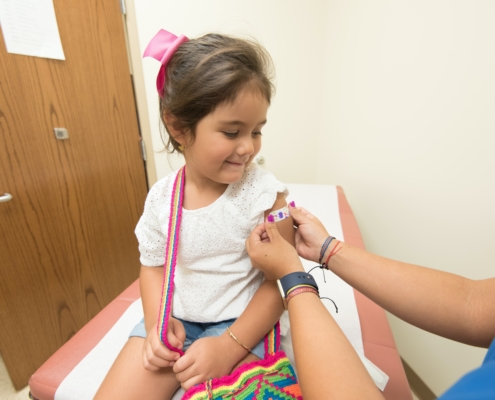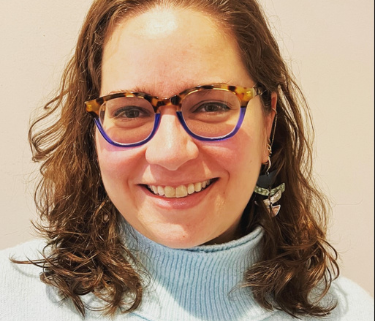The Arc Announces Departure of Longtime CEO and Leadership Transition
The Arc’s Board of Directors announces today that its Chief Executive Officer, Peter Berns, will be leaving the organization upon expiration of his contract in February. Since 2008, Peter has been at the helm of The Arc, the world’s largest community-based organization of and for people with intellectual and developmental disabilities (IDD) and their families. Under his leadership, the organization has charted an ambitious path of growth and modernization as it carries out its mission of “promoting and protecting the human rights of people with IDD and actively supporting their full inclusion and participation in the community throughout their lifetimes.”
Early in his tenure, Berns took on the task of successfully rebranding the organization and its chapter network, creating a unified identity and messaging that increased its national recognition. He then spearheaded the creation of eight new national programs to address pressing needs in the IDD community on aspects of life ranging from education and employment, to future planning, health, and technology, including the National Center on Criminal Justice and Disability and a new legal advocacy program.
He also steered the organization, its 600 chapters, and the people they serve through difficult times, including legislative threats to Medicaid and to Social Security—programs that make life in the community possible for people with IDD.
During the past three years, Berns has successfully led The Arc through the COVID-19 pandemic and supported chapters to adapt their services in a constantly changing environment. The Arc helped lead the disability community through the pandemic, mounting successful legal challenges to discriminatory policies in medical care and rallying advocates for investments in home and community-based services.
At the same time and with the future in mind, Berns led the organization through a collaborative process to develop the new Strategic Framework for the Future of The Arc and launched a new Diversity Strategic Action Plan for Advancing Access, Equity, and Inclusion, broadening the organization’s commitment to intersectional advocacy and supports to people with disabilities and their families.
Under his leadership, The Arc greatly expanded its grassroots organizing and mobilization to achieve more power and successfully influence the government policies and practices that so dramatically affect the lives of people with IDD and their families.
As the organization approaches its 75th anniversary, Berns’ most recent endeavor has been to resurrect The Arc of the United States Foundation, with Foundation board chair Carol Wheeler, to build a base of philanthropic support that will ensure The Arc remains a strong advocate for people with IDD and their families for decades to come.
Commenting on his tenure, Berns said: “Since my first year on the job, I’ve heard people with IDD, their parents, and family members, talk about how they depend on The Arc to protect their rights and support them as valued members of their communities. That simple, honest sentiment was all I needed to fuel my passion for this work over the past 15 years.”
Current Board President, Laura Kennedy noted: “The board thanks Peter for all of his accomplishments during his tenure and wishes him well going forward. He leaves The Arc having built a strong foundation for the organization as it now undertakes a national search for new leadership.”




 This year we are facing a triple threat for flu season: the flu, Covid-19, and Respiratory Syncytial Virus Infection (RSV). RSV is a viral respiratory infection that usually causes cold-like symptoms. Hospitals are currently seeing an alarming increase in pediatric cases of RSV and some are
This year we are facing a triple threat for flu season: the flu, Covid-19, and Respiratory Syncytial Virus Infection (RSV). RSV is a viral respiratory infection that usually causes cold-like symptoms. Hospitals are currently seeing an alarming increase in pediatric cases of RSV and some are  The Arc of the United States has hired its first-ever Senior Executive Officer of Development: Karim Merchant. Karim will lead a team to develop, implement, and manage fundraising strategies that support The Arc’s longstanding commitment to advocate for and serve people with IDD. He will create and implement a comprehensive growth strategy and fundraising plan to cultivate private and public philanthropic support advancing The Arc’s vision for people with IDD to be valued members of their community who can achieve their full potential and a future that is secure. As The Arc approaches its 75th anniversary, Karim will work to build a stronger base of financial support for the national organization, including relaunching The Arc US Foundation, to assure that its advocacy and services will continue for decades to come and give families caring for a person with IDD peace of mind.
The Arc of the United States has hired its first-ever Senior Executive Officer of Development: Karim Merchant. Karim will lead a team to develop, implement, and manage fundraising strategies that support The Arc’s longstanding commitment to advocate for and serve people with IDD. He will create and implement a comprehensive growth strategy and fundraising plan to cultivate private and public philanthropic support advancing The Arc’s vision for people with IDD to be valued members of their community who can achieve their full potential and a future that is secure. As The Arc approaches its 75th anniversary, Karim will work to build a stronger base of financial support for the national organization, including relaunching The Arc US Foundation, to assure that its advocacy and services will continue for decades to come and give families caring for a person with IDD peace of mind.








